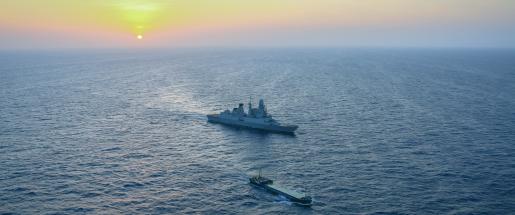EU Security, Defence and Crisis Response
What we do: policies and actions
The Common Security and Defence Policy (CSDP) enables the Union to take a leading role in peace-keeping operations, conflict prevention and in the strengthening of the international security. It is an integral part of the EU's comprehensive approach towards crisis management, drawing on civilian and military assets.
Diplomacy, humanitarian aid, development cooperation, climate action, human rights, economic support and trade policy are all part of the EU's toolbox for global security and peace. These instruments are used in combination, tailoring them to the particular circumstances of crises and adjusting their use to the evolving conditions.
Defence is also an element of the EU’s unique mix of instruments and is crucial to secure European interests today and in the future. That is why a stronger foundation has been built to continuously develop and strengthen Europe’s defence capabilities.
Navigate the topic

Missions and Operations
Under the Common Security and Defence Policy (CSDP), the EU takes a leading role in peacekeeping operations, conflict prevention and the strengthening of international security. It is an integral part of the EU's comprehensive approach towards crisis management, drawing on civilian and military assets.

Crisis management and response
A guiding principle of Lisbon Treaty provisions, which lie at the heart of the very purpose of the EEAS, is the desire to achieve a substantial increase in 'responsiveness' to the opportunities and challenges that exist beyond EU borders. Adequate EU action during external emergencies, which require ad-hoc decision making, is no exemption to this.

Conflict prevention, peace building and mediation
As a global actor, the EU promotes prevention and resolution of conflicts as a mean to support peace and prosperity around the world.

Maritime security
The 'European Union Maritime Security Strategy' is the first comprehensive EU Strategic Framework providing the context and coherence for the EU's diverse and wide array of sector-specific maritime policies and strategies.

Partnerships
TEU Article 21 recalls that multilateralism is at the core of the EU’s external action. “The Union shall promote multilateral solutions to common problems, in particular in the framework of the United Nations.”

Disarmament, Non-Proliferation and Arms Export Control
The EU promotes peace and protects its citizens by restricting the spread and use of weapons worldwide. Through diplomatic, technical, and financial support, the EU helps enforce international treaties that ban or restrict nuclear, chemical, biological, and conventional weapons.

Counter-terrorism
Strong international partnerships are essential to counter the terrorist threat effectively, fully respecting human rights and the principles of international law. Counter-Terrorism requires close coordination of EU and MS efforts and close cooperation with international partners.

Space
Today, space is used for countless civil and military applications, which have induced critical dependencies in our highly connected and digitised societies. The digital economy, the fourth industrial revolution, agriculture, transport (across the transport modes – land/water/air), fishing, energy, finance, urban development, telecommunication, environmental monitoring, and the broad security chain from civil protection to security and defence are amongst the space-reliant sectors.

Cybersecurity
The EU's Cybersecurity strategy answers to the challenges of geopolitical competition in cyberspace, and the increased cyber threat landscape, especially following the covid-19 pandemic. It allows the EU to increase its resilience and show leadership in cyberspace; build capacities to prevent, deter and respond to cyber-attacks; and strengthen its partnerships in favour of a global and open cyberspace.
Integrated Approach to External Conflicts and Crises
The EU Global Strategy for the EU's Foreign and Security Policy lays out the Integrated Approach to External Conflicts and Crisis. This approach helps the EU deal with conflicts and crises outside its borders in a smarter, more joined-up way. By focusing on human security, it not only makes things safer for people in other countries but also boosts the security of EU citizens.
